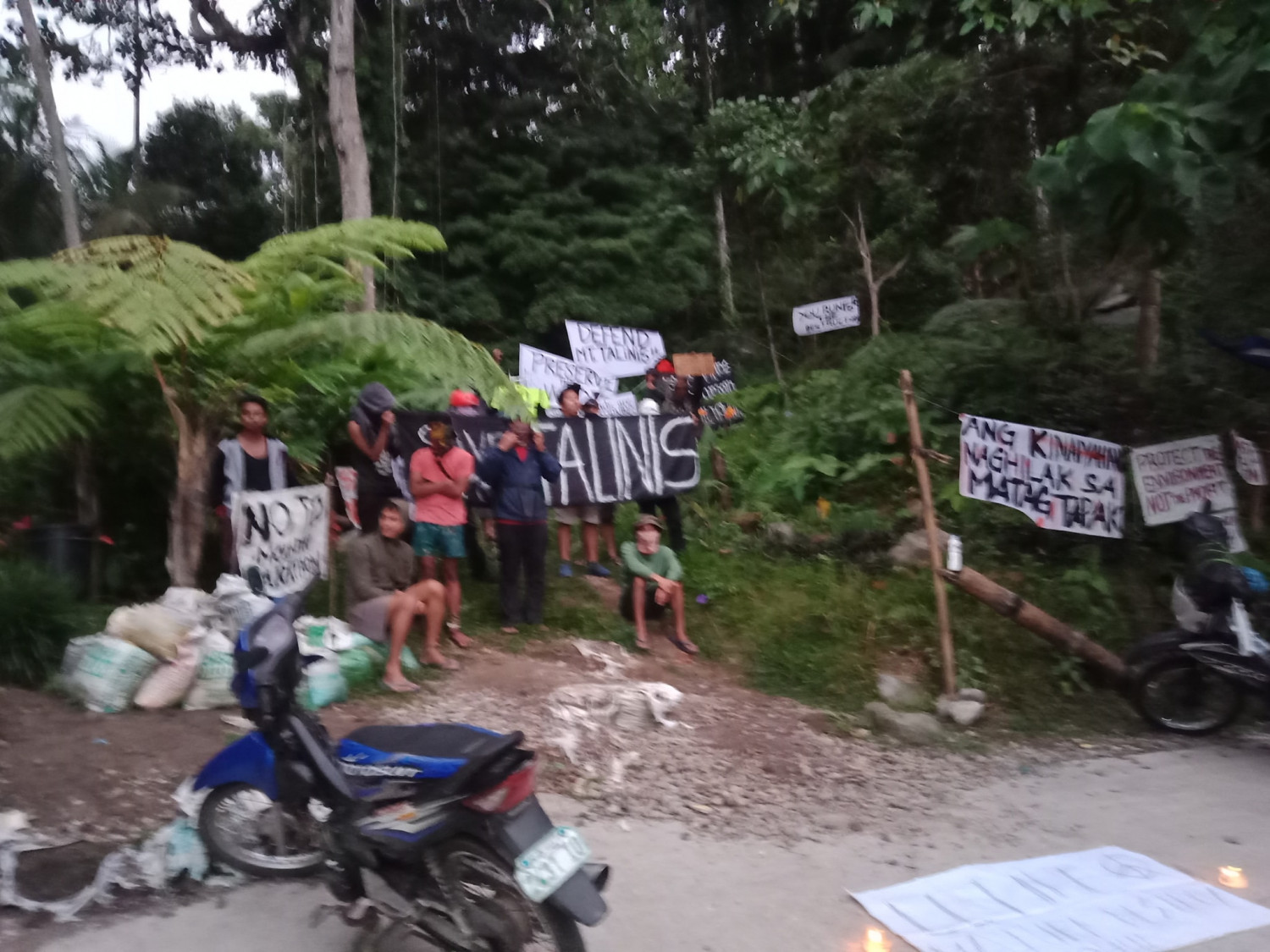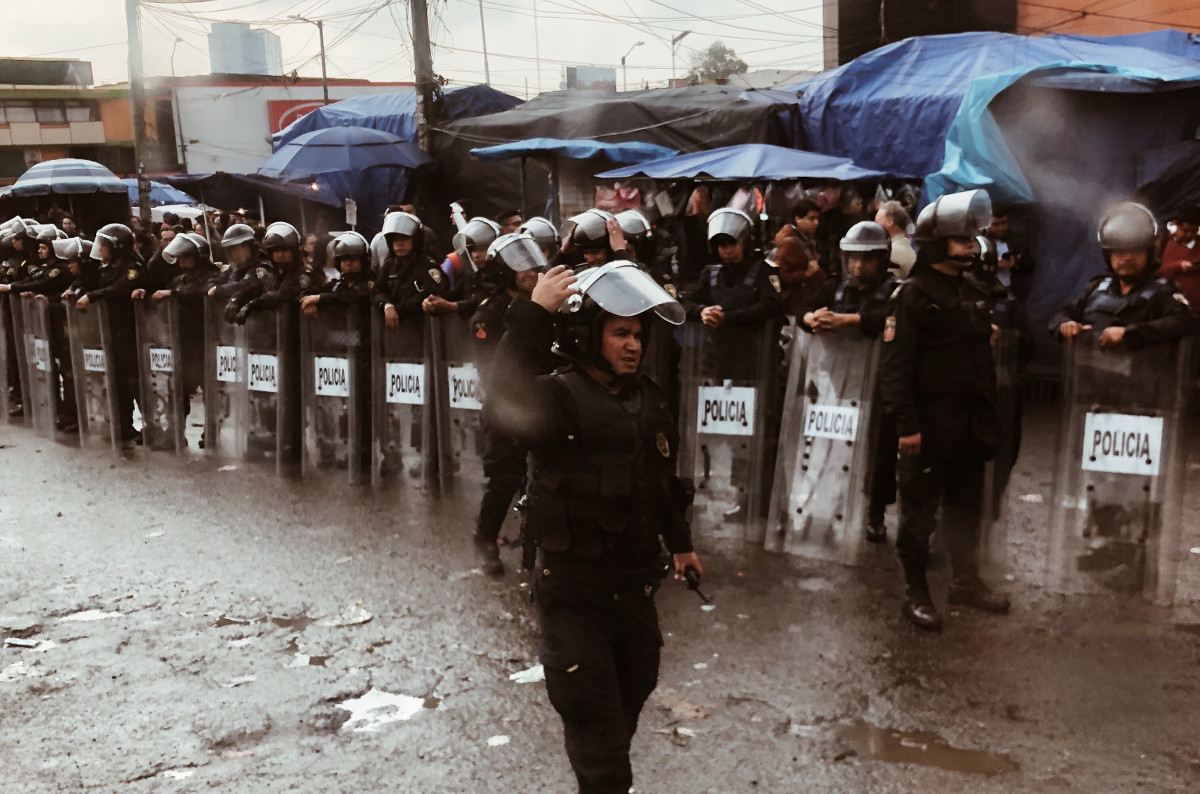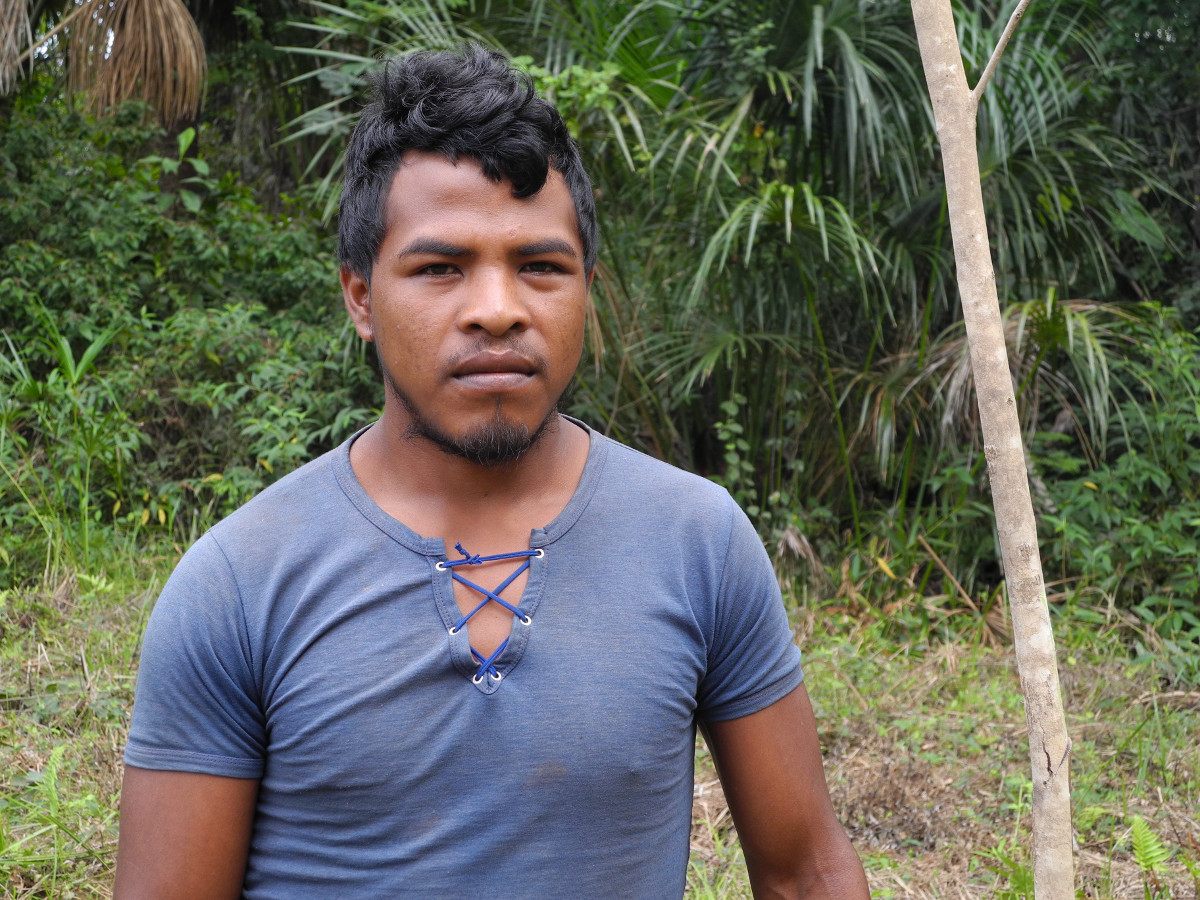
by DGR News Service | Dec 3, 2019 | Defensive Violence, Direct Action
Photo credit: Kinessa Johnson and True Activist
Editor’s Note: DGR does not endorse Kinessa Johnson or VETPAW, and views significant parts of their work as problematic (e.g. pervasive use of nationalistic propaganda, an implicit white saviour narrative, and echoes of imperialism). However, this phenomenon is interesting and worth discussing.
by Liam Campbell
Kinessa Johnson is a heavily tattooed U.S. military veteran, she is also an experienced firearms instructor and mechanic. After completing one tour in Afghanistan she joined VETPAW, an NGO that focuses on providing training and resources for park rangers and anti-poaching groups that protect endangered species. According to Johnson, park rangers in Africa face extreme danger “they lost about 187 guys last year over trying to save rhinos and elephants.” VETPAW’s response is to send U.S. combat veterans to provide specialist training, in hopes that they can help park rangers reduce both poaching and their own casualties.
Framing their mission.
According to Johnson “after the first obvious priority of enforcing existing poaching laws, educating the locals on protecting their country’s natural resources is most important overall.” Although this perspective has an implicitly patronising tone, there is also some validity in it — park rangers are often under resourced, which results in poor training and inadequate equipment. Sending rangers highly-trained specialists makes sense, as does sending them better equipment. What gives me pause about a group like VETPAW is how they’ve framed their mission:
“VETPAW is a group of post 9/11 US veterans with combat skills who are committed to protecting and training Park Rangers to combat poaching on the ground in Africa.
We employ veterans to help fight the increasing unemployment rate of this group in the US but also, and most importantly, because their skills learned on the frontlines in Afghanistan is unrivaled. These highly trained service men and women lead the war against brutality and oppression, for both human beings and the animal kingdom.”
Problematic language.
What stands out to me is the combination of nationalistic buzzwords and the patronising framing. Why specify “post 9/11 US veterans?” Because those are all trigger words for American nationalism. It’s also problematic that their mission frames U.S. veterans as champions who opposed “brutality and oppression.” Last, but not least, is their use of the phrase “animal kingdom” which is a subconscious frame implying an inherent hierarchy (where, presumably, either humans or a christian god presides at the top).
Ecofascism.
To me, this phenomenon is reminiscent of proto ecofascism, the first seed of a new form of fascist movement that wraps itself in nationalistic flags and hides behind the morality of environmentalism. It’s also concerning that groups like VETPAW would have an obvious appeal to combat veterans who are interested in hunting economically desperate Africans, under the guise of charity.
Deep Green Perspective.
From the a Deep Green Resistance analysis perspective, this is a complex issue. It would obviously be better to quietly and respectfully provide resources to indigenously-led groups but, on the other hand, if organisations like this end up resulting in tangible reductions in poaching, that may be better than nothing. What do you think about this issue?
Let us know in the comments.
Join the Resistance
Deep Green Resistance is a political movement for liberation and revolution. We aim for nothing less than total liberation from extractive economics, white supremacy, patriarchy, colonialism, industrialism, and the culture of empire that we call civilization. This is a war for survival, and we’re losing. We aim to turn the tide. We mean to win.

by DGR News Service | Dec 2, 2019 | Property & Material Destruction
Editors note: this material is excerpted from a Deep Green Resistance database called “Resistance Profiles,” which explores various movements, their strategies and tactics, and their effectiveness. We encourage you to study all social movements to learn from their successes and failures.
Goal
Stop the exploitation and destruction of the environment.
Strategy
Stop environmentally destructive businesses through attrition: inflict more economic damage than they can absorb.
Tactics
Economic sabotage via attacks on property using arson, sabotage, and bombings.
Organization
Leaderless, non-hierarchical, small autonomous cells.
Above/Underground
Actions are carried out by underground cells. The North American Earth Liberation Front Press Office (NAELFPO), an aboveground support group, focused on outreach, prisoner support, and raising funds and awareness.
Security
When security culture is followed, its decentralized autonomous cells make the ELF difficult to infiltrate, and if a member is arrested they can give little information to authorities. The NAELFPO allowed underground cells to securely publicize actions.
Recruitment
Mostly indirect. Public outreach and press releases about underground actions inspire individuals and affinity groups to carry out actions of their own. A direct action can be considered an ELF action if it causes economic damage to those exploiting the environment, educates the public, and takes all reasonable precautions to avoid harming human or non-human life.
Effectiveness
The ELF’s strategy of attrition has not inflicted enough losses to offset the profits of extractive and destructive industries. Though activists have caused more than $100 million in damages in various attacks, and slowed or halted many projects, the impact has been negligible on industrial expansion as a whole.
Despite being named by the FBI as the leading domestic terrorism threat, relatively few arrests have been made and most cases remain unsolved.

by DGR News Service | Nov 29, 2019 | Property & Material Destruction
by Deep Green Resistance UK
We’ve listed the underground actions in the UK that are in the public domain, but what about those we don’t hear about? There’s a rich and continuous stream of resistance that never sees the light of day, never seeks the media feeds or the spotlight. A conversation with a friend recently highlighted this ongoing resistance; whilst transiting through a train station near London he overheard an interesting conversation between four rail engineers discussing ongoing targeting and sabotage of strategic signals in the area.
He followed them discreetly to hear more. It seemed that for a prolonged period of six months or more, specific signals along a freight route had been targeted and sabotaged. Trains on this route transport key resources such as minerals and coal. The nuclear waste train also uses this route.
The engineers said it was happening with such foresight, and so very well timed to disrupt the route on a regular basis, that it must be done by someone with inside or working knowledge. We can’t know or speak for these people but we in Deep Green Resistance support their work.
With foresight, planning, and research, it is possible to conduct effective actions without disrupting or harming the public. These actions have caused so little trouble to the public that no one is aware of them, and they’ve gone unreported. The establishment don’t want to report these (unless for disinformation or to discredit groups) so as not to encourage or alarm the general public to the fact that resistance is organised and ongoing. Please share this story as one example of the untold resistance.

by DGR News Service | Nov 15, 2019 | Human Supremacy, Obstruction & Occupation
Editors note: this piece comes from allies in the Arkipelago (decolonized term for the Philippines) who are engaged in ecological struggles and wish to highlight the detrimental effects of mass culture in outdoor recreation.
By Aidalyn IAmMoutara
This is what happened during the #TalinisUltramarathon this morning, October 6. Protesters blocked the entrance of Apolong trail when two truckloads (dumptruck) of participants started to arrived for the 25k and 17k category since other categories have started the previous night.
 The blockade lasted for two hours. The blocking group is not an organization nor any entity. They were individuals who believed that a single race event composing of 333 runners going up in a span of less than 24 hours is too much for Mt. Talinis.
The blockade lasted for two hours. The blocking group is not an organization nor any entity. They were individuals who believed that a single race event composing of 333 runners going up in a span of less than 24 hours is too much for Mt. Talinis.
However, the race continued after a peaceful resolution with the blocking protesters.
Meanwhile on the other side, LGU Dauin was also blocking their jurisdiction (trails inside Dauin) since the organizers fail to coordinate with them for the said race event.
I believe this is the first of its kind. A race event met with protest. This sends out a powerful message to everyone, that we are serious in our convictions to protect Mt. Talinis Range and uphold the rights of the locals.
Events like this should benefit the host communities and not the other way around.

by DGR News Service | Nov 12, 2019 | Culture of Resistance, Direct Action
At least 4 environmental activists are murdered each week, these are only the reported and confirmed killings but even more likely disappear without being verified. Between 2002 and 2017, at minimum of 1,558 people have been murdered while attempting to protect land, water, and local wildlife — for a sense of scale, this represents about half of the U.S. troops killed in both the Afghanistan and Iraq conflicts during that same period of time. We are now in the midst of a global ecological war where one side is defending life, and the other side is devouring life.
The physical act of murder is being carried out by countless thugs, themselves desperate to survive, but the driving force behind these horrific atrocities is industrial consumerism. The violence is motivated by affluent desires for exclusive furniture, luxury vehicles, enriched confections, and upgraded electronics. In this context, the “affluent” class of humanity is anyone living beyond the subsistence of their basic needs: food, water, clothing, shelter, and basic healthcare. If someone can afford a smartphone and a personal vehicle, they are in the top echelons of global consumerism and they are participating in the cannibalisation of this planet.
When we read these truly horrifying statistics, and when we look at the photographs of the courageous people who have been murdered, our first instinct is to think “how horrible, those corporations and governments are awful.” Yes, they are, truly and profoundly awful — but this is a flawed perspective because it fails to see the forest for the trees. Those governments and corporations are not exceptions to the systems they inhabit, they are embodiments of it. Destroying a single government or a single corporation is utterly futile because, like a hydra, their heads easily grow back. If we genuinely believe that life is worth protecting and that these systems are evil, we must target the underlying infrastructure that feeds the beast of industrial consumerism; this can be done by sabotaging key resources, like rubber, to cause cascading supply-chain failures; or by grinding traffic to a halt in order to disrupt the flow of commerce. The one advantage to attacking such a vast and complex adversary is that those intricate and interdependent systems are profoundly fragile and they are immediately accessible.
Today over 1,600 people have been murdered while attempting to save life on Earth. What will you do to this week to honour their sacrifice?

by DGR News Service | Nov 6, 2019 | Biodiversity & Habitat Destruction, Colonialism & Conquest, Defensive Violence, Direct Action, Human Supremacy, Movement Building & Support
Image: Sarah Shenker, Survival International
by Liam Campbell
Paulo Paulino Guajajara, known as Kwahu, has been murdered by loggers in a part of the Amazon currently occupied by the Brazilian government. Equipped with only rudimentary weapons and body armour, and lacking medical assistance, Rainforest Guardians like Guajajara regularly face death at the hands of both government officials and natural resource exploiters. Their only advantages are their intimate knowledge of the rainforest and their deep commitment to protecting those living systems. Guajajara was protecting both his own ancestral land and also the lands of their uncontacted neighbours, the Awá tribe, when he was shot and killed by assassins. Guajajara is not the first ecological activist to be murdered; in April, 3 Rainforest Guardians were similarly slain.
It’s difficult to write this article from the relative luxury and comfort of a Western European country, especially having experienced a small modicum of the difficulties of even living for a few days in jungles like the Amazon — let alone inhabiting those claustrophobic settings with the knowledge that well armed groups of men are hunting for you. I cannot even begin to imagine the courage Guajajara must have embodied in order to take on this critical work; ultimately these words are cheap compared to the very real actions of Rainforest Guardians. We must extend our support beyond words if we’re to meaningfully help them achieve their mission of protecting the world’s dwindling rainforests.
These courageous groups need funding for better defensive weaponry, body armour, combat medicine, training, and basic survival equipment. If we are unable or unwilling to put our own bodies on the front lines to protect nature, then we should share what resources we do have to protect the bodies of people who are willing to put their own lives at risk for the rest of us. Groups like Survival Interntional have a good reputation, or reach out to a Deep Green Resistance representative for additional recommendations.





 The blockade lasted for two hours. The blocking group is not an organization nor any entity. They were individuals who believed that a single race event composing of 333 runners going up in a span of less than 24 hours is too much for Mt. Talinis.
The blockade lasted for two hours. The blocking group is not an organization nor any entity. They were individuals who believed that a single race event composing of 333 runners going up in a span of less than 24 hours is too much for Mt. Talinis.
